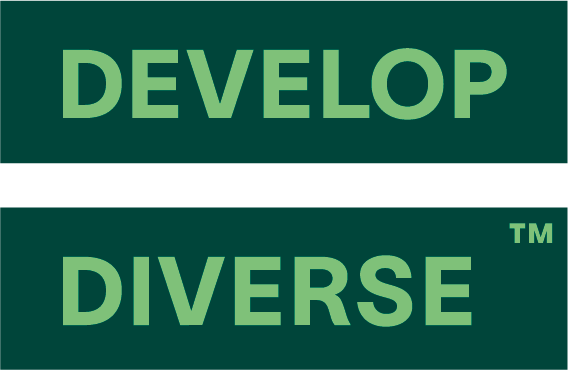Meritocracy refers to the concept of a political system, organization or society run by people chosen on the basis of their skills and merits.
What is the meaning of meritocracy?
A meritocracy is a system of society in which people get rewarded or promoted because of what they accomplish, rather than on the basis of their socioeconomic status or class. Within meritocratic systems, success in life depends primarily on each person’s individual talent, skills and effort.
The highest-ranking positions are thus held by the people with the strongest merits.
Advancement in a meritocracy is essentially based on performance. In a true meritocratic system, the focus is on abilities and qualifications rather than gender, race, or social background.
The goal of this approach is to promote a fair and equitable work environment, encouraging employees to reach their full potential.
Terminology
The term ‘meritocracy’ comes from the word merit which has its origin in the Latin word ‘mereō’, meaning ‘earn’ and the suffix ‘cracy’ from ‘kratos’ which is the Ancient Greek word for strength or power.
In 1958, British sociologist and politician Michael Dunlop Young popularized the term in his dystopian book, The Rise of the Meritocracy 1870-2033, using it to satirically describe a United Kingdom run by a system that favored merit above all else.
Two years before, English industrialist sociologist Alan Fox had used the term in the journal Socialist Commentary.
Even though it was Fox and Young who brought the term meritocracy to the wider world, the concept itself has existed for a very long time. Today, it is primarily used in the context of social systems where personal success is attributed to an individual’s qualifications.
In most countries, it has become an accepted and celebrated form of governance within schools and universities, corporations and organizations, governments and society at large.
Examples of meritocracy
Systems based on a meritocratic mentality can be found in most post-industrial societies across the globe. It is intended to reflect the idea of rewarding individuals based on their abilities and performance, rather than factors like gender, race or status.
Here are some examples:
- Getting the job on the basis of one’s qualifications, not favoritism or nepotism.
- Being promoted based on demonstrated skills and achievements, not just tenure or personal connections.
- Providing opportunities for career advancement based on merit and potential, regardless of background or demographic factors.
- Rewarding employees who consistently contribute innovative ideas and high-quality work, irrespective of their identity
The problem with meritocracy
Even though the concept of meritocracy as a social system is culturally accepted and acknowledged as a fair and equitable approach to recognizing talent, it has also attracted much criticism.
Some scholars have described it as a political ideology and a myth to reinforce a modern capitalist culture in which disparities in wealth and income continue to be perpetuated.
Another strong criticism is that it disregards the influence of systemic advantages and disadvantages.
People from different backgrounds do not start out from the same level (educational, social, economic) but are inherently privileged by the quality of their education, social networks and economic leverage. As such, the notion of a pure meritocracy tends to obscure the need for policies to address social, economic, and racial inequalities.
The paradox
The modern approach to meritocracy can be described as a twofold ideology. On the one hand, it fosters a social system based on the idea that individual success is a direct result of talent, hard work, and effort, motivating people to strive for excellence.
However, this notion also assumes that socioeconomic progression and opportunities are equal for everyone. In reality, access to quality education, healthcare, and economic resources varies widely, impacting people’s ability to achieve success, despite their talent and efforts.
On the other hand, meritocracy can be understood as an ideological vehicle for neoliberal conceptions that prioritize market-driven solutions over collective social responsibility. As such, it runs the risk of serving as a smokescreen for systemic inequalities that perpetuate a false sense of merit-based fairness.
One example is the college degree. Higher education in many countries is based on a meritocratic screening system that disregards the role of privilege and social connections as factors that influence admission decisions, regardless of the applicant’s merits.
Meritocracy in the workplace
Meritocracy is present in all strata of society, including the workplace. Within a meritocratic organization, employees have equal opportunities to advance and obtain promotions based on their hard work.
Here are some ways in which meritocracy plays out in the workplace:
- The best ideas generally win over the not so good ones. Of course, the question is who decides which ideas are the best ones.
- Every employee has the opportunity to express themselves and is encouraged to do so. However, while each individual at the company has a voice, the reality is that some voices often carry more weight than others based on their position within the company.
- Employers consistently recruit the top talent. This means hiring the best candidates based on their merits alone. Policies and frameworks are developed to ensure that applicants are evaluated exclusively on the basis of their skills and abilities, disregarding factors such as race, gender or age. That said, there is no guarantee that the policies and evaluation processes can remain unbiased and inclusive. While the intention is to prioritize skills and abilities, unconscious biases can still impact decision-making.
- The most talented workers are rewarded and promoted. However, the criteria for identifying talent and excelling individual performance is often unclear, which makes it difficult to assess if it is a truly fair and transparent process. Also, the focus on individual performance may sometimes overshadow the importance of collaboration and teamwork. While rewarding top talent is important, it is equally important to acknowledge the collective efforts of teams.
